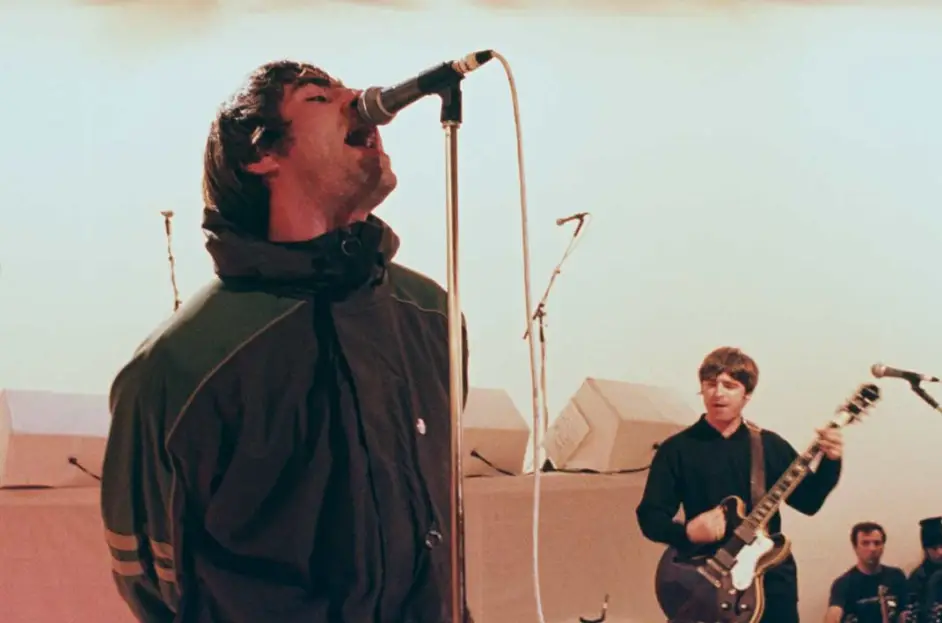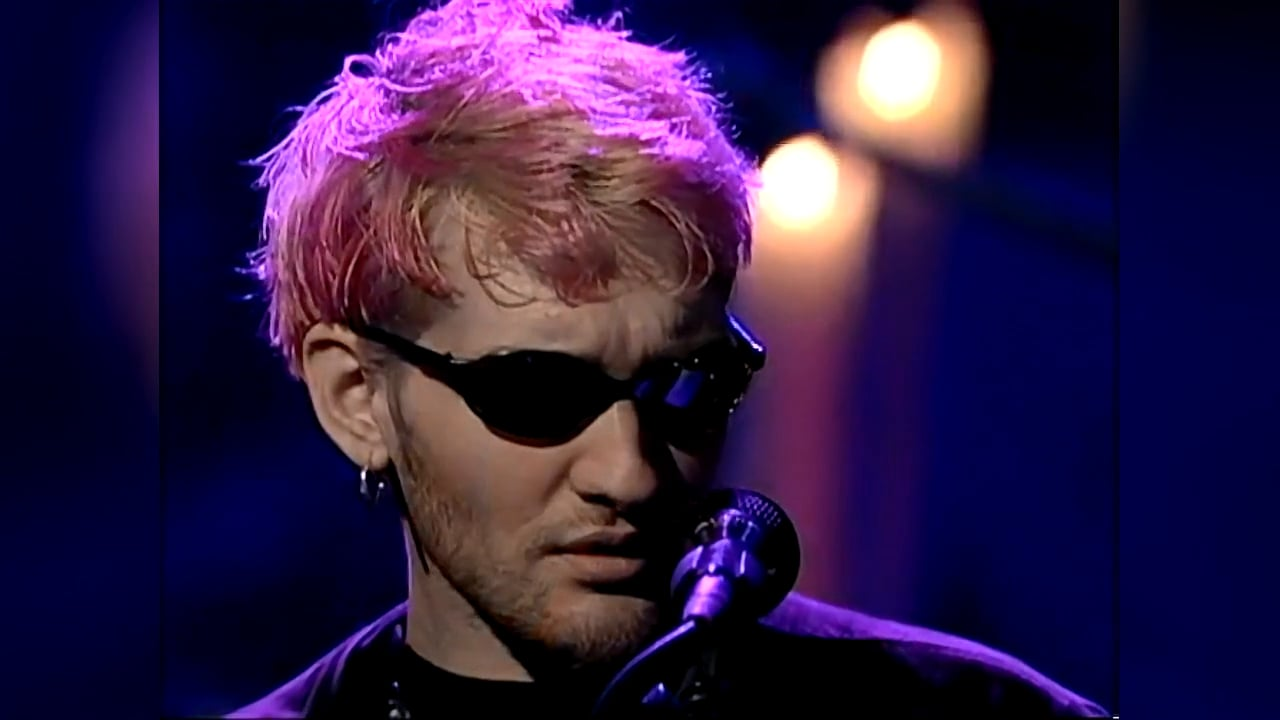The Alternative 90s, the AV Club's Retrospective: 1997
Today, we continue the journey through a remarkable period of music history. This series is meant as a companion/reaction piece to Steven Hyden’s Whatever Happened To Alternative Nation? Accurately subtitled as “One man’s year-by-year journey into 90s rock.” You can get this highly recommend work on Kindle for just $2.99. Do it!
Look back
for previous editions where we covered part 1, part 2, part 3, part 4, part 5, part
6, and part
7.
Hyden’s
approach to 1997 is centered almost exclusively on two bands. Oasis leads
things off. Their third full-length, Be Here Now, was released in April
of that year. But much of the attention is on the years preceding it. Hyden
shares his memories of first finding their debut, Definitely Maybe, in
his local record store and blasting it on his mom’s car stereo while cruising
around the Appleton, Wisconsin area.
There is
something so very American and wonderful about how the freedom to drive at age
16 has a personalized soundtrack, isn’t there? In the early 90s, cassette tapes
were cheerily loaned or copied, be they albums or homemade mix tapes, and much
musical excitement took place on the suburban streets or stretches of highway. I
could name a thousand of these instances, but the most fun one I can recall
is when our friend Boris presented “Jump Around” to everyone
in Brad’s
Toyota Paseo. Not a lot of space to jump around inside a moving Paseo, but we
somehow managed to follow the song’s directions without causing a crash.
Hyden
states that Oasis was one of his favorite acts in the second half of
the 90s, which is something that was surely true for many people. As he put it, “Great Oasis songs were like sharks – no brains, all teeth, and out
for blood and naked girls.” They were purported to be the second coming of The
Beatles, only with selfish rockstar attitudes. The second half of this was
true, but the failure of Be Here Now kiboshed the loftier ambitions. Yet,
their popularity was earned with some of the catchiest tunes of the decade, and
a clear step forward for rock music.
Radiohead
provided the perfect contrast. Another UK group that started off as a band to
complain about. Another Bush who was merely ripping off the Pixies and Nirvana.
“Creep” was a huge hit off their first record, but not remotely original. Their
second album, The Bends, showed some musical progression, with some
memorable songs, but was not exactly breaking new ground. Which is why OK
Computer landed as perhaps the biggest revelation
in music history. This is not hyperbole.
I vividly recall hearing “Paranoid Android” for the first time,
accompanied by its insane
NSFW video (which could not be more 90s). This was not just different for
Radiohead. It was different from anything anyone had heard before. The entire
record presented a perfect merging of the band’s talents and pointed to an
entirely new direction for them as an avant-garde yet incredibly popular rock
band, something that hadn’t existed since the 1970s. Hyden makes the point that,
in addition to the very public rivalry between the two acts, Oasis and Radiohead
can be seen as divergent entities
Radiohead looked like Gallant to Oasis’
Goofus. Oasis was in hock to the
past, relying on the stature of the British rock heroes they were stealing from
to give weight to oversized gestures not even the Gallagher brothers could pretend
to be enthusiastic about anymore. Radiohead appeared to be ahead of the curve,
forecasting the paranoia, media-driven insanity, and omnipresent sense of
impending doom that’s subsequently come to characterize everyday life in the 21st
century.
In the end,
Oasis definitely definitely felt like the end of something. They had two great
albums with songs forever cemented in the musical consciousness of pretty much
everyone. And then they ran out of worthwhile things to play and to say. As mentioned
in the last post, there were a ton of very good English bands in this space,
but the one that took this sound forward, in the most neutered way possible,
though drawing a bit on Radiohead’s influence as well, was Coldplay. That’s
worked out very well for them, but it certainly feels like we could have had a
better trajectory. Hyden brings them up with a relatively positive mention. But
this book is 14 years old, and things have, let’s say, evolved.
I know this is not how Hyden was going about it, and he says
in the prologue “you’re going to complain when I leave certain bands out.” But given
how morose 1996 felt, it’s worth noting that we got either seminal or level-up
albums from the following acts: Hum, Poster Children, Richard Buckner, Old 97s,
Get Up Kids, At the Drive-In, No Knife, Modest Mouse, Blur, and Spiritualized.
Foo Fighters put out the indelible “Everlong.” The Verve
resleased their most accomplished record to date (though, of course I prefer their earlier
stuff). All this is to say that the early 90s chapter of alternative, grunge in
particular, ended after 1994, and seemed like it would simply die, either of
overdoses or lack of newness. OK Computer is the hall of fame player,
but look at that list. These are all “alternative” acts, but across at least
eight different subgenres. The best bands in the new century would be generally
coming from the paths carved out by these trailblazers and their late 90s
peers.
In 1997 I graduated college and moved back to Chicago. I missed the radio station and the colossal wealth of music and
musical knowledge (i.e. loveable geeks) that I was immersed in. But I started a
job and got lucky that there were other music geeks on the team. I had some disposable income and was living in a city chock full of great
venues, one that no band ever skipped on a North American tour. We were surely in a
new era, but the explosion of new ways to be an alternative band meant a
never-ending pursuit of excitement. It didn't apply to the masses anymore,
but I didn’t have to care about that. Who needs masses when you can see your favorite
new shiny thing at the Double Door?
Do we have Radiohead to thank for that? No idea, but they
deserve credit for elevating alternative more than anyone had in years. I’ll
let Hyden wrap up, noting their status and their progression:
Nobody gets more respect than
Radiohead. Other artists look to Thom Yorke for musical guidance, and his band
is the gold standard for how to conduct a rock ‘n’ roll career with a measure of
ethics and dignity. But let’s not allow our memories to pull a fast one on us.
Once upon a time, Radiohead only wished it was special.















